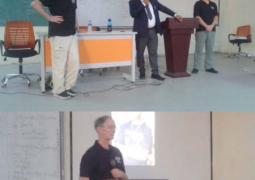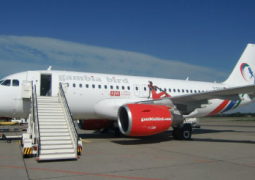The
Speaking at various regions, Momodou Lamin Gassama, the project director for Nema stated that the
It is in response to The Gambia government’s request to IFAD for a substantial project that will contribute to the implementation of the Gambia National Agricultural Investment plan (2011-2015), particularly programmes 1 and 3: Improve Agricultural Land and Water Management; and Develop Agricultural Chains and Market Promotion in an effort to alleviate food insecurity.
According to him, the overall goal of Nema is to reduce poverty of rural women and youth.
The geographic coverage of the project is defined as all six Agricultural Regional Directorates, along the River Gambia, essentially the whole rural sector.
As a follow–up to the national launch, the Project Steering Unit, in collaboration with the Ministry of Agriculture and the Central Project Coordinating Unit conducted regional launching programmes in URR, CRR, LRR and WCR, respectively.
Speaking at West Coast Region, governor Alhagie Lamin Sanneh said the National Agricultural Land and Water Management Development Project (Nema) is one of such projects, which is aimed at enhancing food security and poverty reduction in The Gambia, a phenomenon regarded as a priority for the government of The Gambia.
This is manifested in The Gambia government’s Vision 2020, the MDGs, the Gambia National Agricultural Investment Plan (GNAIP) and the Programme for Accelerated Growth and Employment (PAGE).
According to him, the project would tackle the limited productivity and economic carrying capacity of land used for farming; and poorly developed domestic markets that generate very low real demand for the main produce of smallholders.
“You are all aware that, The Gambia is still burdened with widespread and persistent rural poverty, particularly among women and youth,” said governors.
This is characterised largely but not limited to large proportion of youth without full-time gainful employment in the country, insufficient income from farming activities, erratic or unstable rainfall patterns, low utilisation of rainfall and river flooding and lack of access to affordable quality seeds, among others.
The project will intervene in water management for rice production, vegetable schemes, access and market infrastructure, high quality seed production, agriculture business development and training, among others.
The project’s direct benefits is that it would reduce the drudgery encountered by women in their farming activities, improve physical access to markets and production sites and access to labour- saving devices, such as land preparation equipment (power tillers, seeders), harvesting facilities and on and off-farm processing facilities.
He said “enhancing food security will take both national vision and local action; strategy and implementation, which must therefore be linked in order to obtain our vision of food security and poverty reduction.”
The Nema project has potential to transform agriculture and improve economic empowerment for the beneficiaries, thus improve food security. However, much will depend on the consolidation and sustainability of the gains of the project made.
Mr Ashme Cole, deputy permanent secretary, responsible for projects and programmes at the Ministry of Agriculture revealed that the project was financed by a grant from IFAD, the Government of The Gambia, Islamic Development Bank, Financial Service Providers, other partners, including private sector off-takers and beneficiaries.
According to him, Nema is fully aligned with The Gambia’s GNAIP, which was developed within the framework of the new partnership for
The objective of the launch is to facilitate all the stakeholders to have a common and shared vision of the expected impacts, outcomes and outputs and the strategies and processes leading to these results.




